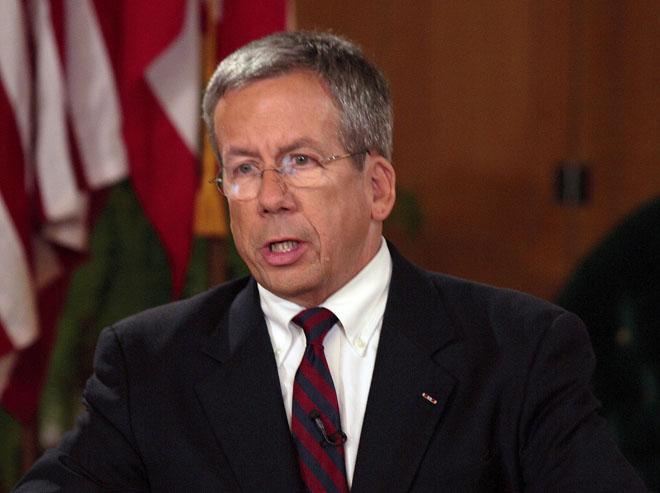
Just weeks into his campaign for Ohio governor, Democrat State Supreme Court Justice Bill O’Neill is already facing questions that he may have violated Ohio’s Code of Judicial Conduct by running for office while serving on the bench. The code requires judges to resign “upon becoming a candidate in a primary,” but O’Neill has yet to step down and has pushed back on calls for him to do so. In response, the editorial board for Ohio’s biggest paper, the Cleveland Plain-Dealer, is calling on him to either resign or end his candidacy. As O’Neill faces growing pressure to drop out or step down from his post, his attempt to “have it both ways” raises serious questions about his ethics as he seeks the state’s highest office.
The Cleveland Plain-Dealer writes:
“Ohio Supreme Court Justice Bill O’Neill, a Chagrin Falls Democrat, announced Oct. 29 that he’s running for governor. Yet he’s not stepping down, despite Ohio’s Code of Judicial Conduct, which requires a judge to resign ‘upon becoming a candidate in a primary or general election for a nonjudicial elective office.’
O’Neill insists he’s not an official candidate until his candidacy is certified — in February. In the meantime, he plans to rule on pending cases, while recusing himself from future cases.
True, the Ohio judicial code is silent on when someone ‘becomes a candidate.’
But O’Neill can’t have it both ways. Now that he’s an announced partisan political candidate, he can’t pretend he’s an impartial justice. He must step down.
Whatever the legalities, O’Neill’s interpretation of the judicial canon goes against the canon’s spirit. In the eyes of Ohioans, the others already running for governor before O’Neill’s announcement — at least four other Democrats and four Republicans — are candidates, certified or not. Now O’Neill is, too. A candidate, to Ohioans, is a candidate.
This issue has arisen before. In January 1982, then-Chief Justice Frank D. Celebrezze, a Greater Cleveland Democrat, announced he was running for governor. He remained on the court. Roughly eight weeks later, Celebrezze decided against running, after he’d first resigned from the court, then, the next day, withdrew his resignation. All this prompted controversy and complaints from some lawyers that Celebrezze had violated the canon’s “resign to run” provisions.
Even amid the best intentions, appearances matter. And Ohioans now see an announced candidate for governor on their state’s highest court.
That’s not what the Code of Judicial Conduct envisioned. If Justice O’Neill isn’t prepared to end his candidacy now, he must resign.”





See the latest videos from RGA
Watch our videosThe numbers say it all. New Hampshire can’t afford to become @maura_healey's Massachusetts.
NEW: Eleven economic development projects in Ohio are expected to create 1,025 new jobs statewide.
Details: https://bit.ly/3J1ZYDO
Follow RGA on Twitter
Follow RGA on Facebook